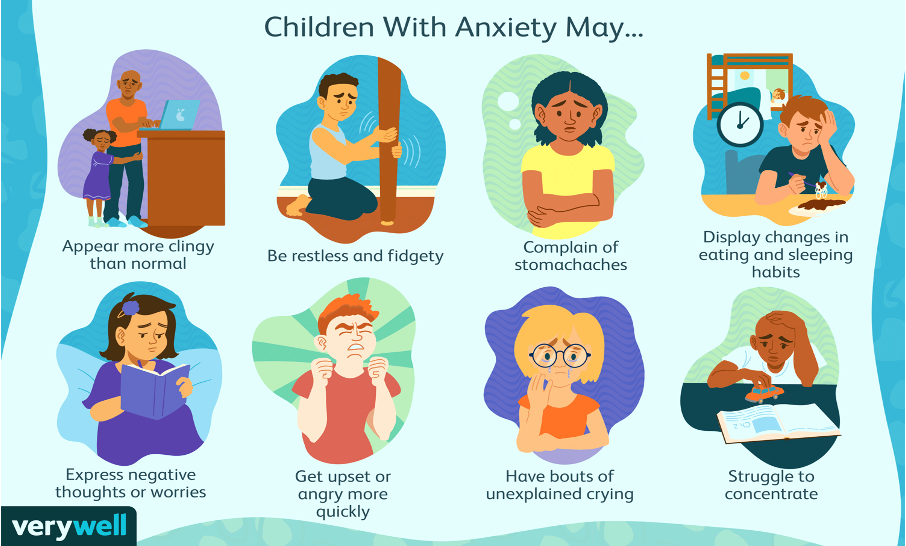Anxiety is a healthy and essential emotion that we all experience, even throughout our developmental years. Anxiety is responsible for keeping us safe and protecting us, however children experience anxiety on a spectrum. They can move between healthy and functional levels of anxiety, to unhealthy and dysfunctional levels of anxiety.
Anxiety is healthy and functional when it is still experienced as manageable and does not significantly change or hinder a child’s behaviours or thought patterns. Healthy levels of anxiety support your child to prepare for new situations and challenges, and through this process it also builds their resilience and confidence.
However, anxiety can also become unhealthy and problematic during developmental years. This is when your child’s experience of anxiety is severe, persistent, and gets in the way of children and family’s everyday life. Other indicators include if your child is more anxious than other peers of a similar age, if it stops them engaging in activities at school or with peers, and if their fears and worries seem out of proportion to the issues in their life.
Children’s anxiety can present quite differently to adults, and therefore can sometimes be challenging to identify. Anxious children are typically depicted as shy, nervous, and avoidant. However, this is just one of many presentations of an anxious child. They can also present as irritable or reactive, controlling of their environment, argumentative, withdrawn or disengaged, or sensitive to feedback or criticism.
Anxiety is a highly complex emotion. Children won’t naturally understand what anxiety is, nor will they have the language to communicate these complex feelings. This is where their adult support network can model healthy expression of emotions and encourage exploration of feelings for children. We can also observe children’s patterns of behaviours to try and identify when they are feeling unhealthy levels of anxiety. Some of the common symptoms and behaviours you may notice in an anxious child include:
- Increased irritability and reactivity to emotions
- Behavioural outbursts
- Low distress tolerance
- Feeling sick or nauseous
- Complaining about headaches or dizziness
- Difficulty concentrating at school, or a notable change in academic engagement
- Worrying about making mistakes or doing the wrong thing
- Emotional (crying) over small things
- Avoidance of particular places, people, or experiences
- Struggles with separating for family and home (can be experienced as clingy)
- Asks for help and reassurance with things they can do for themselves
- Avoids going to school, many engage in school refusal
- Excessive fear of the dark, dogs, injections, being alone, germs, tests
- Always seeing the dangerous or negative side of things
- Avoidance of trying new things
- Regular reassurance seeking
- Withdrawal and disengagement from people and activities
- Difficulties with transitions
- Difficulty adapting to changes in environment
- Difficulty sleeping
- Excessive tiredness
- Sensory sensitivity

Severe anxiety can have a detrimental impact on children’s mental and emotional wellbeing and development. If anxiety is left unaddressed in early childhood it can have a significant impact their development of self-image, confidence, and resilience. When you recognise that your child’s anxiety is unhealthy and problematic, it’s a good idea to get support and intervention. Early intervention is effective in building the skills and resilience needed to manage and overcome their anxiety, so that their level of anxiety comes back to the healthy range.
An important tip to help you recognise when your child is anxious is to focus on building your child and families understanding of anxiety and developing your families emotional vocabulary. This is a highly protective skill that will help your child feel comfortable and confident in sharing their experiences of anxiety with you, and ultimately seeking the support they need.

We've tailored the services at RWA Pyschology - Family Matters to all age groups from young children to adolescents and adults - and we have specialists in crisis, short/medium term counselling and longer term psychotherapy.
Call RWA psychology for an appointment with one of our psychologists.
